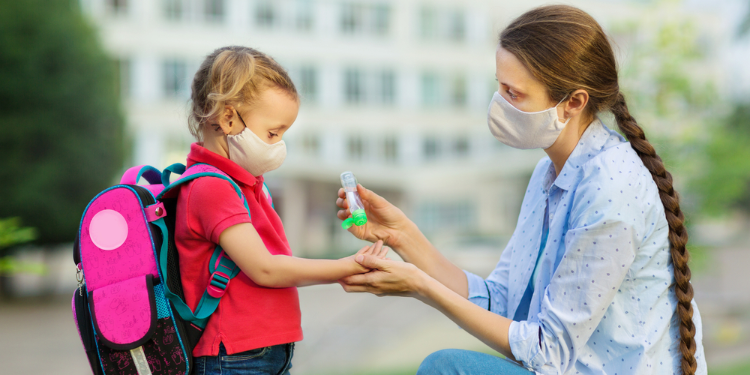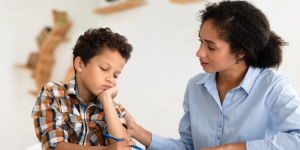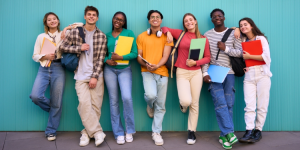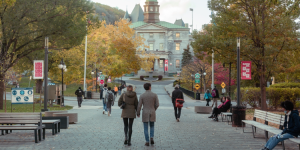
In the coming weeks, millions of children around the world are going back to school after studying remotely for several months. With new COVID-19 surges, parents are finding it hard to abide by government decisions although a series of measures are being implemented by schools and local authorities to ensure the safety of children.
A British expat in Batam, Indonesia, Graham has serious concerns regarding the reopening of schools. In fact, the Indonesian government recently announced that schools will reopen progressively in areas with the lowest COVID-19 infection rates. But for Graham, sending his children back to schools isn't an option for now, given the uncertainty. “Most schools closed around April and some a pushing to reopen. However, the law is flexible with regard to children attending or homeschooling. Our children will not return to school before 2021." This doesn't bother Graham in any way, though, as he spent the past few months homeschooling with the help of prepared lessons from the school teachers. “It can take as long as it takes, 6/12 more months won't be an issue. We don't get many chances with health, but we all spend a lifetime learning. The children cope well, but my youngest doesn't understand about not always going outside or normal activities”. According to him, some measure have been good locally if not most of them, but it's more the local population and lack of understanding and disregard that concerns him. "Sadly, its that mindset that appears to be spreading the virus locally and it is getting worse, especially since they introduced in Indonesia the 'new normal'".
Ahmed, a Pakistani expat in the United Arab Emirates, shares Graham's views. He adds that "Small children are too vulnerable and the restrictions that will be in place may be counter-productive. It is like sending them to a friendly detention centre rather a school." For Ahmed, it is going to be 100% online learning for the time being until they have a daily number coming down to single digit.
Meanwhile, European parents are having mixed feelings regarding the reopening of schools. Some are coping pretty well with the situation, as in France where some schools had reopened in May, but others are rather skeptical. "We obviously knew that schools would reopen at some point, but it's not going to be easy, especially for primary schools and nursery kids to abide by the regulations", says Fabienne, a French expat in Spain. For her, the risk is real although local authorities and schools are ensuring that social distancing and other regulations are respected.
How are schools reopening around the world?
Around the world, governments are implementing strategies for the smooth reopening of schools. These measures include temperature checks, regularly hand sanitising, as well as social distancing and the compulsory wearing of face masks. In most countries, the wearing of masks is compulsory from the age of 10 or 15, except in Spain and some other countries where it is compulsory from the age of 6. Besides, students won't be allowed to mix with other classes in order to make contact-tracing easier.
The wearing of masks is compulsory for teachers and students in many Asian countries such as China, South Korea, Japan and Vietnam. Children are only allowed to take off their mask during lunch break. In other countries, especially in Europe, wearing a mask at school is optional. In Austria, for example, given the very low transmission rate in schools, the wearing of masks has been put aside for students. In France, where about twenty new departments are now listed in the red zone, wearing a mask is compulsory at college, even during recess. Teachers and educators are also required to wear a mask from the pre-primary level. Where COVID-19 cases are suspected, schools will close down temporarily. Schools also need to have an isolation room for suspected cases.
In Quebec, a protocol has been established to ensure the smooth reopening of schools for the fall semester. It's worth noting that social distancing is not required among stable class groups. The teacher-student rapport will be the same as before the health crisis. However, the different classes have to avoid mixing with one another to facilitate contact-tracing in case of contamination. Also, all subjects, including physical education and art, will be taught in face-to-face classes. The wearing of masks is not compulsory, but allowed for preschool children up to the 4th year and recommended for 5th and 6th year children in common areas, including school buses.
Other countries, like the United States, are being more cautious due to the rising number of COVID-19 cases. While some schools have already reopened, others are currently working on a hybrid strategy comprising of a mix of face-to-face and remote classes. Face-to-face classes will be provided in small numbers by respecting for social distancing. Elsewhere, such as in the Philippines and Indonesia, schools will not reopen until there is a drop in the number of cases and an efficient vaccine is found.
Should you send your child back to school?
Whether you're ready or not, in some countries, you don't have much of a choice. Keep in mind, at all times, that education is compulsory in most countries and that compromising the education of your minor child is an offence. In France, for example, according to article 227-17 of the Penal Code, refusing to send your child to school is liable to a fine of € 30,000 and a two-year prison sentence. In the UK, refusing to send your children to school can result in a fine of £ 60 and up to £ 120 if not paid within 21 days. Also, parents are required to justify the absence of their children if it lasts for more than 3 days.
In the USA, on the other hand, the Centers for Disease Control and Prevention has set up a tool for parents, teachers and other caregivers to help them assess the situation and decide whether to they will send their children to school. Regardless of the situation, consider the risks as well as the benefits of sending your children to school after several months of isolation. Also, make sure they are mentally prepared to go back to school and that they have no health issues that could make them more vulnerable to the coronavirus.



















